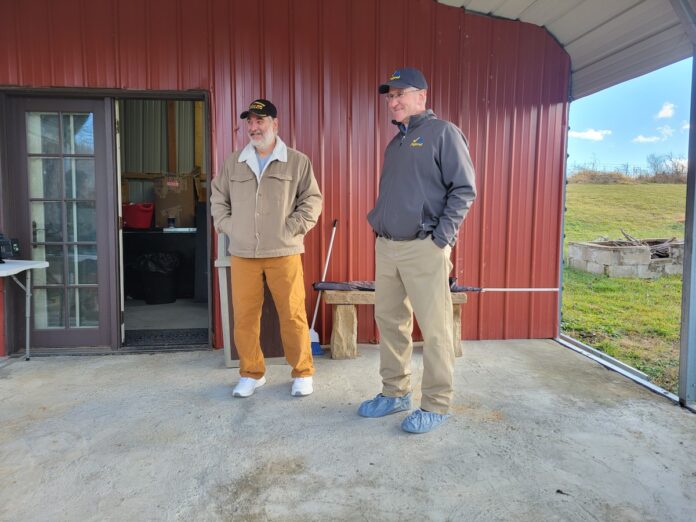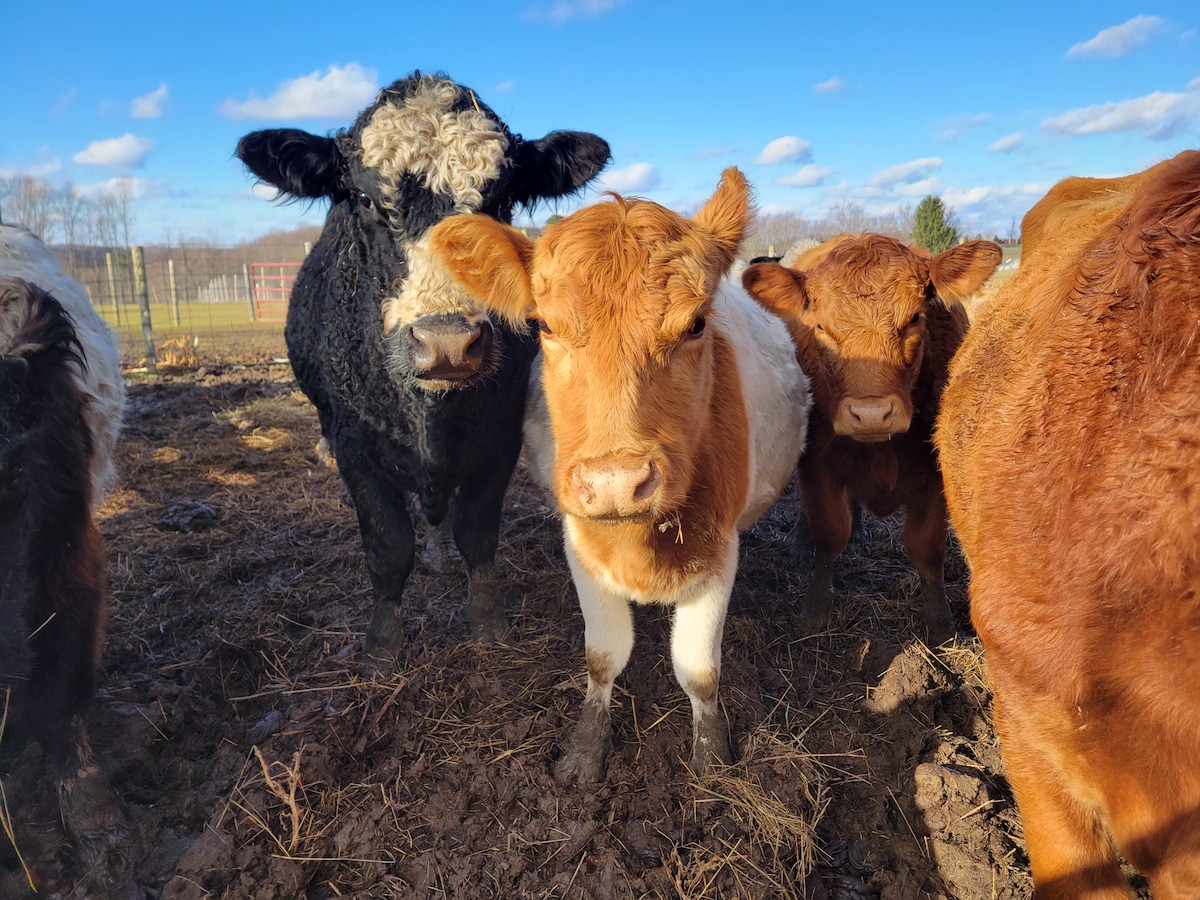
MCCLELLANDTOWN, Pa. — Even as Larry Daugherty was stationed in hot, dusty Iraq, he was thinking about the farm he’d have one day back in the lush foothills of the Appalachian mountains.
“When I was overseas, I started compiling a book on different designs and goals for if I’d ever be able to make it back to be able to buy a farm,” he said.
Daugherty made it back and now runs Heritage Farms, a pasture-based livestock farm in Fayette County, Pennsylvania, that is part business and part therapy for the combat-injured veteran.
“The only boss I have to answer to is my wife,” he said, with a smile.
The farm
Daugherty grew up working on his mother’s family farm near Morgantown, West Virginia. He remembers working together with his relatives on what they called a “thrashing.”
“We’d be cutting hay and corn and things like that,” he said. “All the family would gather together and help them out. That’s where I first experienced the farm life. It grew from there.”
Daugherty served in the Army National Guard from 1992 to 2009, when he was medically retired.
He was first with the Pennsylvania Guard, serving as a crew member for a mortar team and later transitioning to an M1 Abrams Tank. He also served in the West Virginia Army National Guard as a mechanic and fill-in for the platoon sergeant.
He said he enjoyed his time in the military, so he kept re-enlisting. After 9/11, Daugherty was activated with about a dozen other guard members to work security at the Armory and the Morgantown Airport. Then, in 2003, his platoon was activated to go overseas as a part of Operation Iraqi Freedom. He was deployed until 2005.
It’s there that he was injured. The humvee he was in took a direct hit from an IED. Daugherty had been hit by some shrapnel, but finished out his tour because he didn’t want to abandon his platoon and team members.
After he came home is when he realized the extent of his injuries. It took several years but eventually he was diagnosed with a traumatic brain injury. He also suffers from severe PTSD. His neuropsychologist told him he wouldn’t be able to hold a regular 9-5 job, given his head injury.
Daugherty bought his farm in 2014 with money from a cash settlement with the VA. There was nothing there but a house and about 40 acres when they bought the place.
Farming, luckily for Daugherty, is not a regular job. It’s one he can do at his own pace, adapting his work to his health needs that day.
“It was like a therapy farm for me as far as being able to make it so I’m still viable and able to do something,” he said. “It’s just one of those injuries where if you’re having a bad day, with the farm you can do your chores at your discretion.”
He started building barns and putting up fence as he was able. He has a small cow-calf herd of Galloway beef cattle and heritage breed hogs. He raises all animals from birth to finish. The past several years he’s finished and processed about 70 hogs.
The farm is also home to a variety of animals that Daugherty has rescued or acquired in various ways. There is a horse, a pony, a ram and some goats. These animals will live out their lives on Daugherty’s farm.

Support
Agriculture Secretary Russell Redding visited Daugherty’s farm in Fayette County Nov. 30. Daugherty gave Redding a tour of his farm and served him lunch of homemade pulled pork.
It was his second veteran farmer visit of the day. Redding stopped by Navy veteran Rob Mowery’s farm, Forever Heart Farm, in Allegheny County, as part of a push to encourage people to support veteran-owned farms.
In September, the Pennsylvania Department of Agriculture awarded $200,000 to two veterans’ service organizations to be offered up to veteran farmers in the form of grants of up to $10,000.
Daugherty and Mowery are on the board of directors for the PA Veteran Farming Network, one of the grant administrators. The grants were born from a monthly call the department has with the board. Mimi Thomas-Brooker, director of the PA Veteran Farming Network, said the department asked what veterans needed, and they answered with candor.
“We need assistance that will bump our farms like this up to the next level,” she said. “We need grants that don’t require a match, because if we had the capital we would spend it ourselves. We need a program that doesn’t have a lot of red tape and that responds directly to the needs of small and very small farmers.”
The recipients of those grants will be announced early next year, she said.
The plan
While some of what Daugherty planned in his book has come to fruition, much of the farm has arisen by adapting out of necessity.
He and his wife, Anita, hit the road selling pulled pork, ribs and other prepared foods in a food trailer in 2019 to help put their son through college. Daugherty said he was retired from the military before he could transfer his post-9/11 GI bill benefits to his son.
Daugherty bought a used enclosed trailer and built everything in it himself for about $2,000. The food trailer was a big draw during the pandemic and the year after, but things have slowed now. Daugherty’s son graduated college last spring debt free due to the food trailer, he said.
The next project has been to build an on-farm store. The demand for retail cuts grew, so the Daughertys wanted to make it easier for people to buy directly from them.
That project is nearly complete. Daugherty looked into getting a pre-fabricated building, but decided he could build one himself for less expense. He converted a metal carport into a one-room store and a porch using metal sheeting he had on the farm.
They’re planning some more projects for next year, adding more pasture and rebuilding fences.
“It’s kind of snowballed,” he said.
(Reporter Rachel Wagoner can be reached at 724-201-1544 or rachel@farmanddairy.com.)









